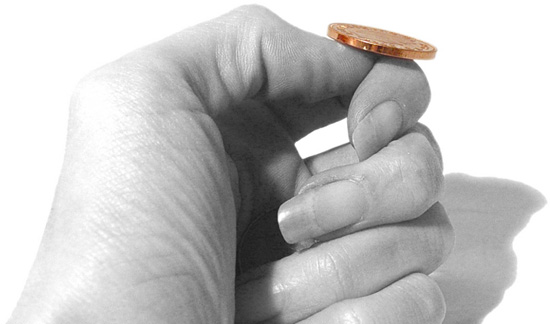I’ve just started reading Against the Gods: The remarkable Story of Risk, a book by Peter Bernstein that’s been high on my “To Read” list for a while. I suspect it will be quite interesting, though it’s clearly targeted at a general audience with no technical background. In Chapter 1 Bernstein makes the distinction between games which require some skill, and games of pure chance. Of the latter, Bernstein notes:
“The last sequence of throws of the dice conveys absolutely no information about what the next throw will bring. Cards, coins, dice, and roulette wheels have no memory.”
This is, often, the very first lesson that gets presented in a book or a lecture on probability theory. And, so far as theory goes it’s correct. For that celestially perfect fair coin, the odds of getting heads remain forever fixed at 1 to 1, toss after platonic toss. The coin has no memory of its past history. As a general rule, however, to say that the last sequence tells you nothing about what the next throw will bring is dangerously inaccurate.
In the real world, there’s no such thing as a perfectly fair coin, die, or computer-generated random number. Ok, I see you growling at your computer screen. Yes, that’s a very obvious point to make. Yes, yes, we all know that our models aren’t perfect, but they are very close approximations and that’s good enough, right? Perhaps, but good enough is still wrong, and assuming that your theory will always match up with reality in a “good enough” way puts you on the express train to ruin, despair and sleepless nights.
Let’s make this a little more concrete. Suppose you have just tossed a coin 10 times, and 6 out of the ten times it came up heads. What is the probability you will get heads on the very next toss? If you had to guess, using just this information, you might guess 1/2, despite the empirical evidence that heads is more likely to come up.
Now suppose you flipped that same coin 10,000 times and it came up heads exactly 6,000 times. All of a sudden you have a lot more information, and that information tells you a much different story than the one about the coin being perfectly fair. Unless you are completely certain of your prior belief that the coin is perfectly fair, this new evidence should be strong enough to convince you that the coin is biased towards heads.
Of course, that doesn’t mean that the coin itself has memory! It’s simply that the more often you flip it, the more information you get. Let me rephrase that, every coin toss or dice roll tells you more about what’s likely to come up on the next toss. Even if the tosses converge to one-half heads and one-half tails, you now know with a high degree of certainty what before you had only assumed: the coin is fair.
The more you flip, the more you know! Go back up and reread Bernstein’s quote. If that’s the first thing you learned about probability theory, then instead of knowledge you we’re given a very nasty set of blinders. Astronomers spent century after long century trying to figure out how to fit their data with the incontrovertible fact that the earth was the center of the universe and all orbits were perfectly circular. If you have a prior belief that’s one-hundred-percent certain, be it about fair coins or the orbits of the planets, then no new data will change your opinion. Theory has blinded you to information. You’ve left the edifice of science and are now floating in the either of faith.

